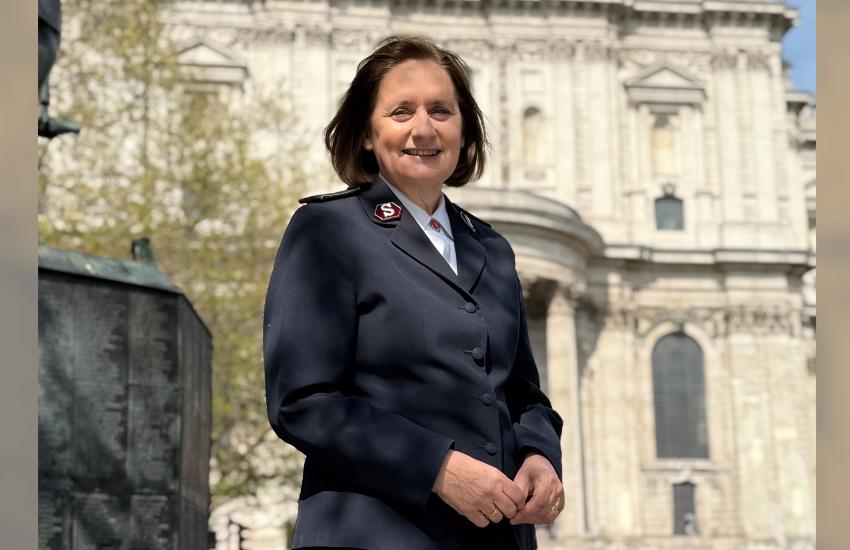Members of The Salvation Army's International Emergency Services team on a fact-finding visit to northern Uganda have been appalled by the conditions faced by many people, particularly children. More than a million people are crammed into 188 ‘official’ camps in northern Uganda, but basic provision of health facilities, water and sanitation are almost non-existent. Education is also severely affected, with the ratio of children to teachers being as high as 300 to one.
A meeting with Surendra Panday, Senior Programme Officer of the United Nations High Commission for Refugees (UNHCR) in Uganda, revealed that the situation is likely to get worse. In the past year alone the number of internally displaced people has doubled to around 1.6 million. The north of the country also has camps housing approximately 65,000 refugees – mainly from Sudan – although more than 40 attacks on the camps by rebel forces in the past three months have forced many refugees to flee from established camps to informal settlements, putting a strain on the local communities' resources.
Major Cedric Hills (International Emergency Services Coordinator) and Captain Mike McKee (Field Operations Officer), who are assessing how The Salvation Army can help, visited one of the newest refugee camps at a place called Lira. Conditions are desperate – one borehole serves 4,000 people, and malaria is a huge problem because of the inadequate sanitation and stagnant water in the camp.
Captain McKee says: ‘We left Lira appalled at the human misery we had witnessed and feeling that we should do all we can to help – but that still it wouldn’t be enough.' Visits to other camps showed that the awful conditions in Lira are far from unique. In Erute Camp, which is home to around 10,000 people, the visitors saw malnourished children with distended stomachs. The camp is divided into two sections, the smaller of which has no water supply. Families have tried to build walls of mud bricks and tied tarpaulins on top to make a roof. Some of these makeshift houses are only a few bricks high and clearly inadequate for families.
Major Hills comments: ‘It is almost impossible to put into words the horror of the situation – especially bearing in mind the lack of hope for a return home.’ In the wider community, crops have failed and a poor harvest is predicted.
In one region, thousands of children ‘commute’ at dusk into towns because of the danger of staying overnight in the camps. The children spend the night in a variety of temporary shelters with no food, inadequate sanitation and no electricity. The children sleep so closely together that the risk of epidemic is high. In the morning they go straight to school. At one makeshift centre visited by the Salvation Army officers there are just 14 staff looking after 5,000-6,000 children. Some children have been undergoing the daily 'commute' for two years.
‘Conditions are heartbreaking,' says Major Hills. 'The children come each evening with their siblings for fear of attack by the militia forces. For most this has become a way of life – a way of life that no child should ever have.’
The Salvation Army has launched an appeal for funds which will enable it to start a relief programme in Uganda. Donations can be directed to the International Headquarters Africa Disaster Fund.
Assessment team in Uganda finds 'heartbreaking' situations
Discover more

The Salvation Army celebrates the launch of new online magazine
A redesigned and reimagined All the World is now live!

A brilliant idea
Major Peter McGuigan writes about All the World and introduces its team

The core of the Christian faith
After 1,700 years, the Nicene Creed is still relevant today

Five minutes with... Fernanda Rivera
From Mexico City to global platforms, Fernanda Rivera is a passionate advocate for youth inclusion and blends faith, activism and community to empower young voices. In this Q&A, she shares her daily work, spiritual journey and her hopes for the

Be yourself, be available
Major Peter McGuigan sat down with Commissioner Jane Paone, The Salvation Army’s Secretary for International Ecumenical Relations, and discovered a story for the ages
A magazine for the ages
Commissioner Ted Horwood introduces The Salvation Army’s new digital All the World